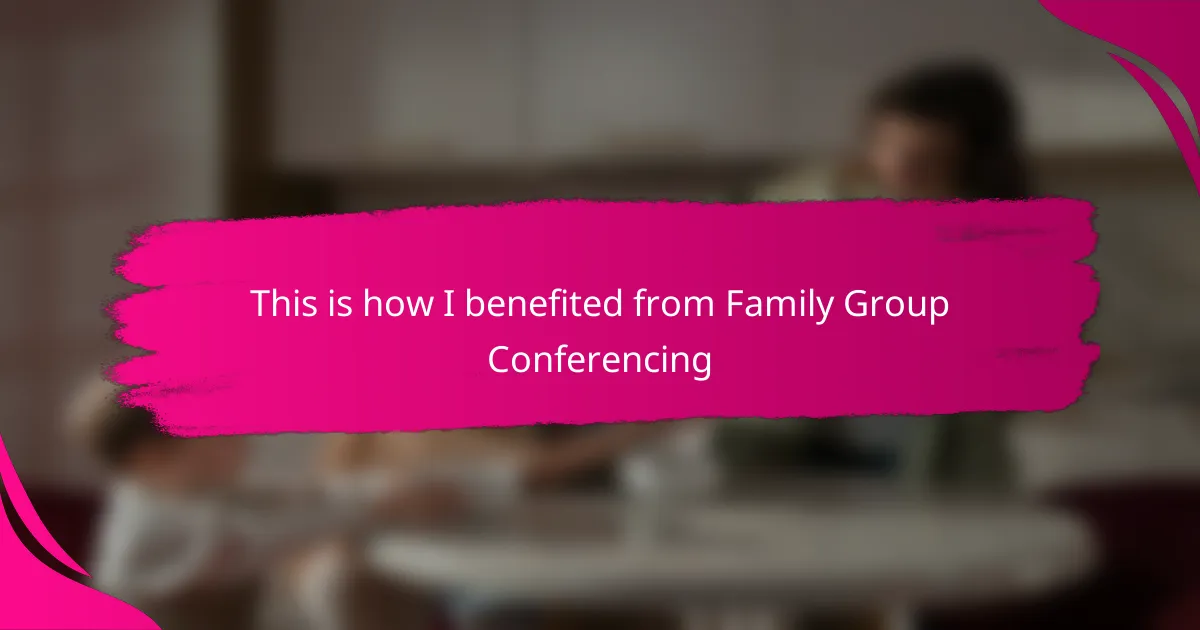Key takeaways
- Family Group Conferencing fosters open communication and collaboration, creating a supportive environment for parenting challenges.
- The process empowers involvement from extended family, providing valuable insights and reducing feelings of isolation in parenting.
- Implementing small, achievable goals during conferences enhances accountability and strengthens family bonds over time.
- Consistent check-ins post-conference are crucial for maintaining progress and reinforcing commitments among family members.
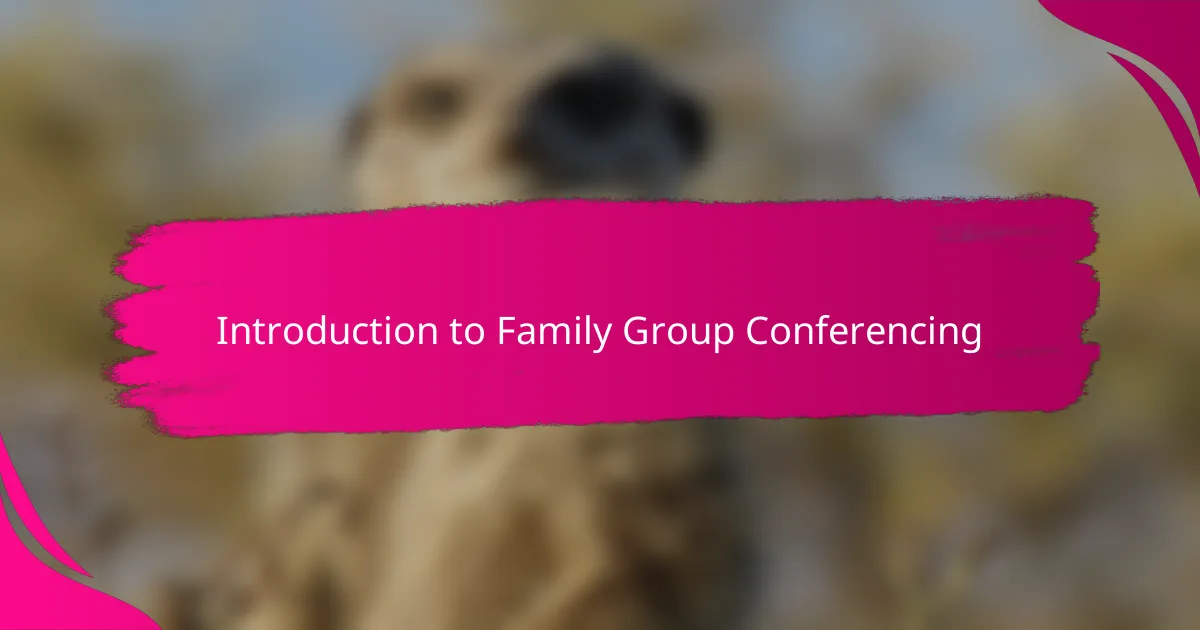
Introduction to Family Group Conferencing
Family Group Conferencing is a decision-making process that brings together family members to talk openly about challenges and find solutions. When I first heard about it, I wondered, could simply gathering the people who matter most really change everything? From my experience, it creates a safe space where every voice is heard, and that makes all the difference.
What struck me most during our first conference was the genuine care flowing between relatives, even those we barely spoke to before. It made me realize how much strength we draw from connection—and how powerful collaboration can be when everyone is focused on the same goal. Have you ever thought about how your family’s perspective might unlock answers you hadn’t considered? That’s exactly what happened to me.
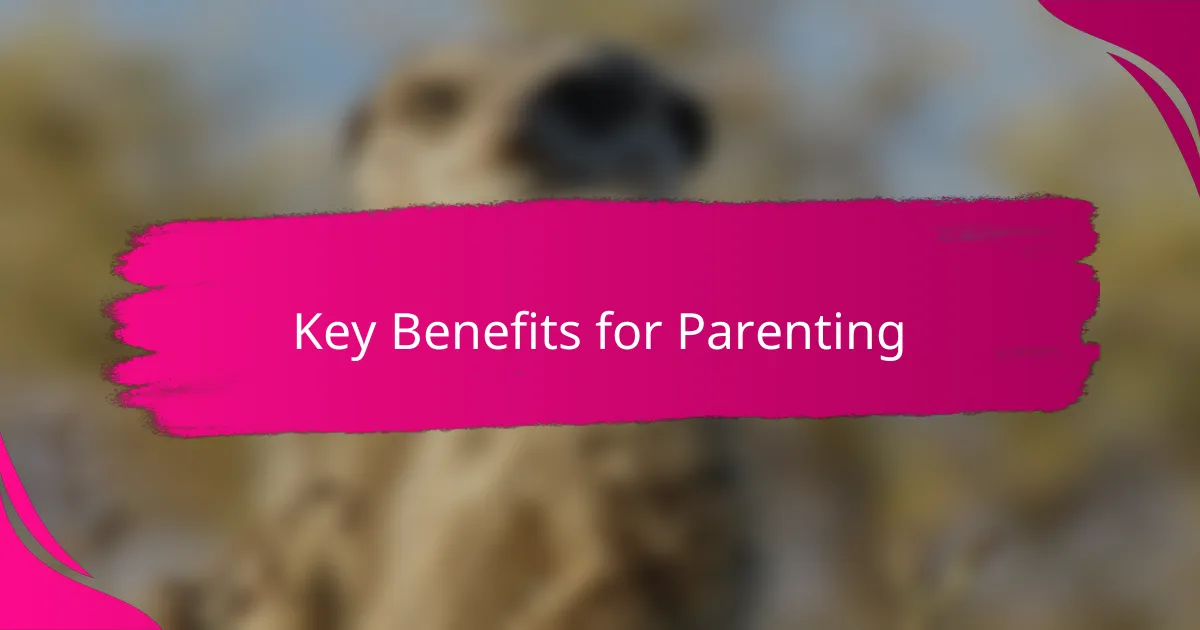
Key Benefits for Parenting
One key benefit I noticed right away was how Family Group Conferencing helped us break down barriers in communication. Suddenly, my children and I were listening instead of just reacting, and that shift made parenting feel less like a battle and more like a shared journey. Have you ever experienced a moment where just being heard changed your whole approach to a problem? That’s what happened for us.
Another thing I appreciate is how this process empowered me to involve extended family members in parenting decisions. Their insights weren’t just extra opinions—they brought history, wisdom, and support that I hadn’t realized we were missing. It made me feel less alone as a parent, knowing there was a whole network ready to help us navigate challenges.
Finally, the sense of accountability created through these conferences was a game-changer. When everyone has a say in the plan, it’s easier to stick to commitments, and children sense that we’re all working together for their benefit. This cooperative spirit strengthened our family bond in a way that feels both natural and lasting.
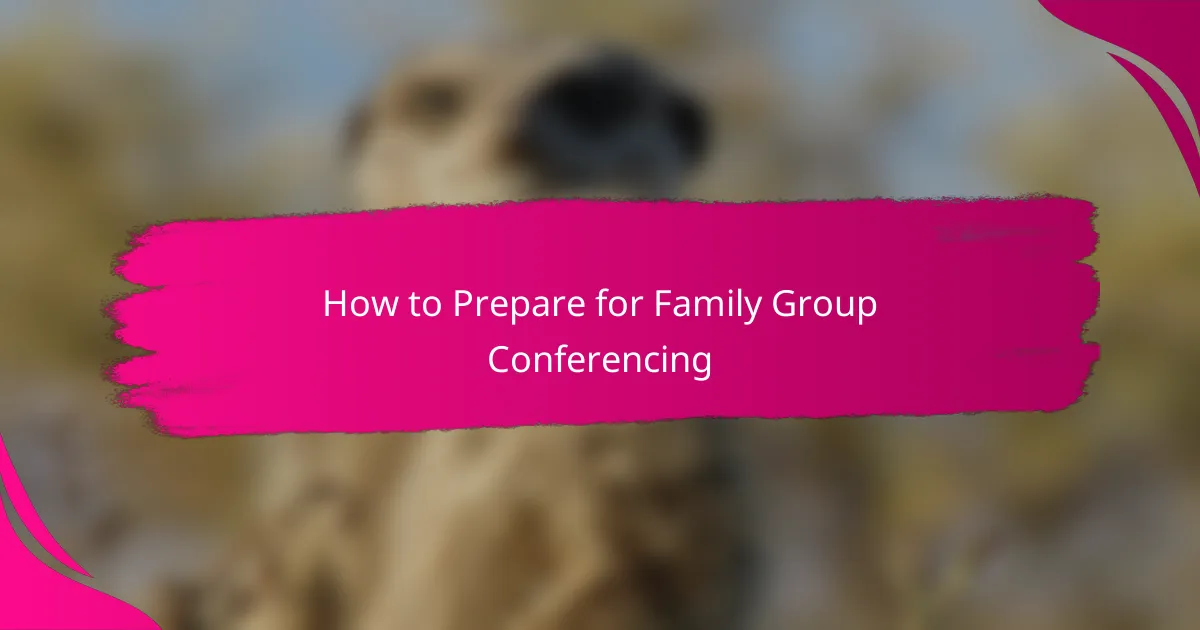
How to Prepare for Family Group Conferencing
Preparing for a Family Group Conference felt a bit overwhelming at first—I wasn’t sure where to start or how to bring everyone together. What helped me was listing the key issues I wanted to discuss and sharing this agenda with family members ahead of time. It made the gathering feel purposeful rather than chaotic, and I noticed everyone came more ready to listen and contribute.
I also found it crucial to create a calm mindset before the meeting. Taking a few deep breaths and reminding myself that this was a space for open, honest dialogue helped me stay grounded. Have you ever gone into a tough talk feeling defensive? Learning to shift that nervous energy into curiosity made all the difference for me.
One practical step that made the conference smoother was deciding on a neutral, comfortable location where everyone felt safe. This small detail eased tensions and encouraged openness. Plus, agreeing on a time that worked for most helped show respect for everyone’s schedule—and that little gesture of consideration set a positive tone right from the start.
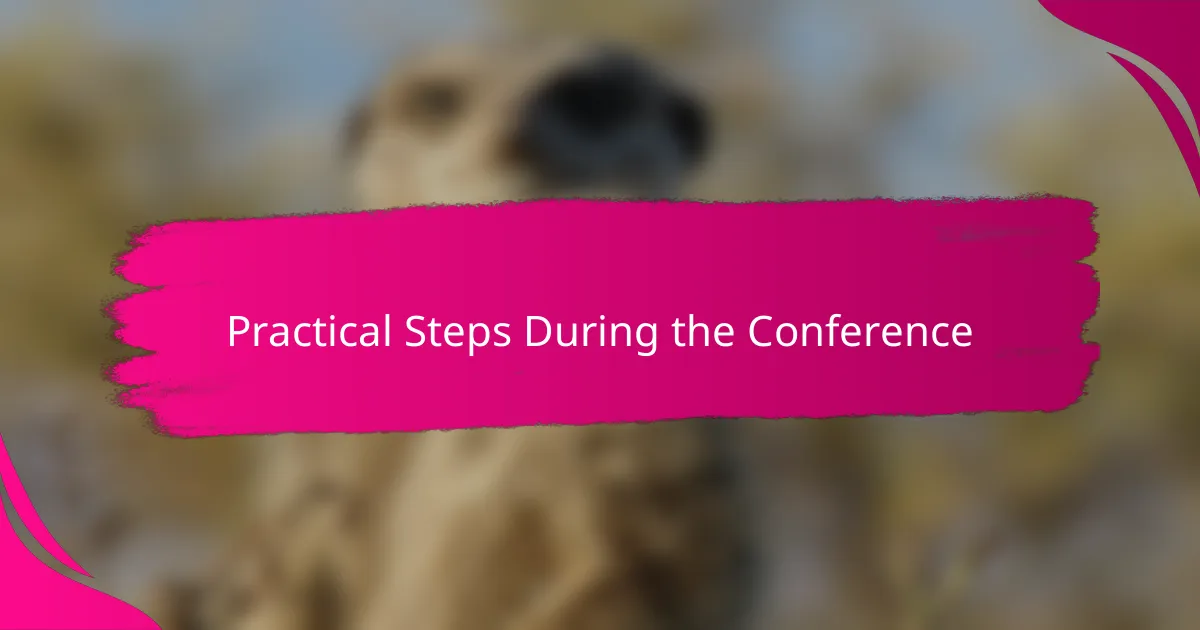
Practical Steps During the Conference
During the conference, I made it a point to listen deeply, not just wait for my turn to speak. It surprised me how much clarity emerged when I really tuned into others’ perspectives instead of rushing to respond. Have you ever discovered solutions just by giving space to others’ voices? That’s exactly what unfolded for us.
Taking notes was another step that helped me stay focused and keep track of ideas. I wasn’t perfect at it, but jotting down key points made the follow-up feel less overwhelming. Plus, it showed everyone that their thoughts mattered enough to be remembered.
We also set small, achievable goals right then and there, which made the whole plan feel real instead of vague promises. Breaking it down like that gave me confidence we could actually stick to what we agreed on—and it made the children feel seen in the process. What’s a simple action you think your family could commit to right now?
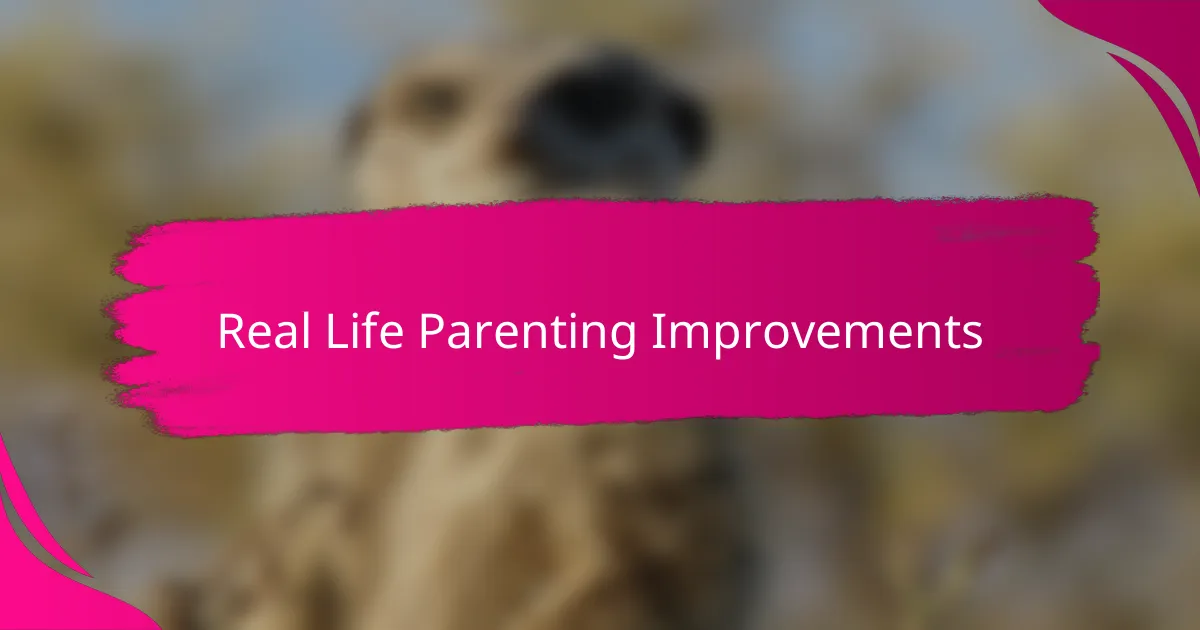
Real Life Parenting Improvements
After starting Family Group Conferencing, I noticed real changes in how I managed daily parenting challenges. Instead of feeling overwhelmed, I found myself calmer and more patient because the whole family was actively involved in problem-solving. Have you ever felt that parenting stress lighten just by sharing the load? That’s exactly what happened to me.
One moment that stands out was when my teenager opened up about struggles I hadn’t known about, simply because the conference created a safe space for honesty. It shifted our dynamic from confrontation to collaboration, making discipline and guidance feel less like impositions and more like mutual agreements. I realized how much easier it is to stay consistent when everyone understands the reasons behind decisions.
The improvements didn’t stop with just communication. Family members started checking in regularly, reminding each other of commitments we made together. This sense of shared responsibility brought a new level of reliability to our routines, and I saw firsthand how kids thrive when they feel supported by more than just their parents. Have you experienced that boost in cooperation when everyone’s on the same team? It’s a game-changer.
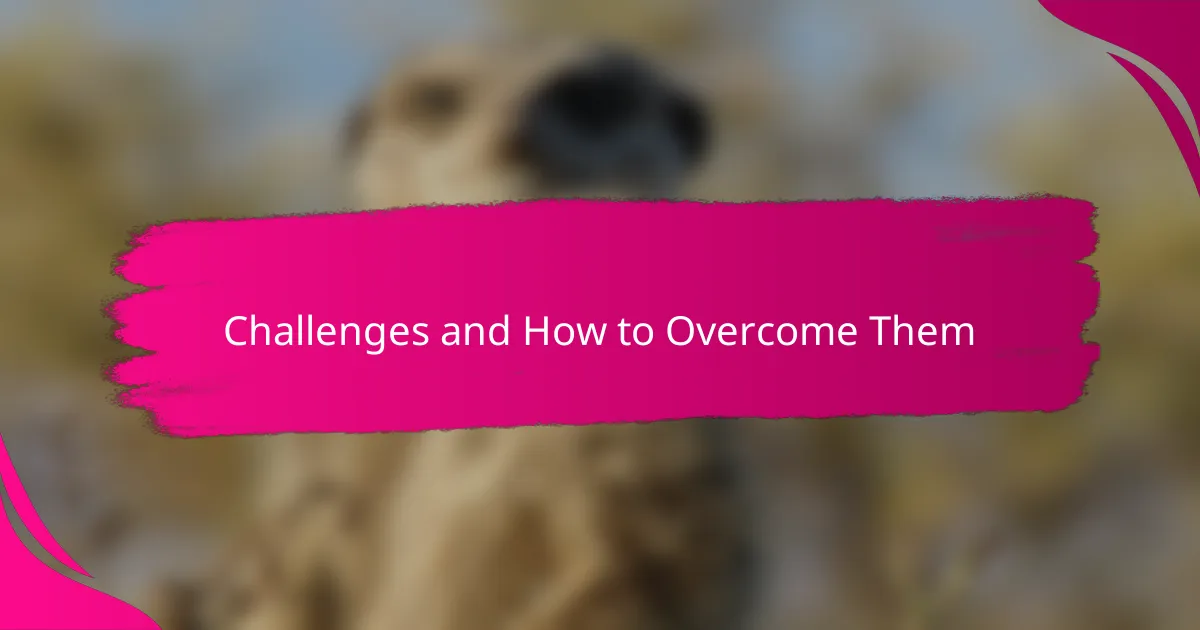
Challenges and How to Overcome Them
The biggest challenge I faced was managing emotions during the conference. It wasn’t easy to keep conversations calm when tensions ran high, but I found that gently steering the discussion back to shared goals helped us stay connected. Have you ever noticed how focusing on what unites you can soften even the toughest disagreements? That was a turning point for us.
Another hurdle was making sure everyone felt safe to speak openly, especially those who usually stayed quiet. I realized that patience and encouragement—like asking gentle questions and acknowledging small contributions—made a huge difference. It reminded me that sometimes, the quietest voices hold the most important insights.
Finally, sticking to the plan after the conference was tricky. Life gets busy, and old habits creep back in. What helped me was setting regular check-ins with family members to revisit our agreements and celebrate progress. That accountability created a sense of commitment we all needed to keep growing together. Have you tried simple reminders or catch-ups to keep your family on track? It might be worth a shot.
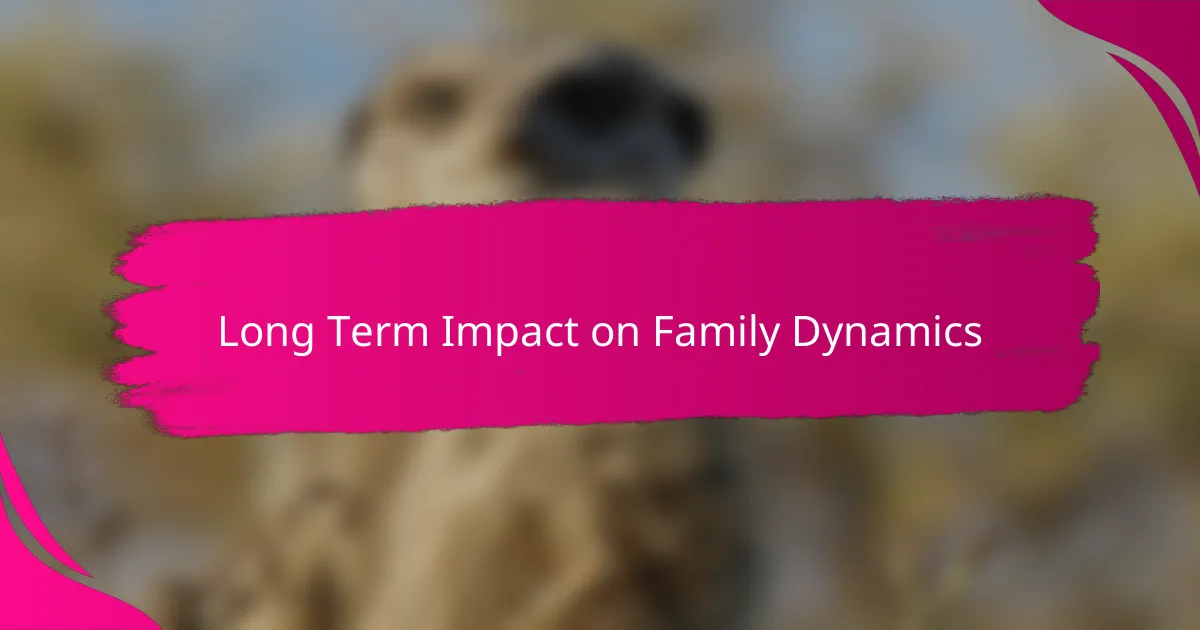
Long Term Impact on Family Dynamics
The long-term impact of Family Group Conferencing on our family dynamics has been profound. Over time, I’ve seen tentative interactions grow into stronger, more trusting relationships, where even the most distant relatives now share a genuine commitment to supporting one another. Have you ever noticed how consistent, open dialogue can slowly transform old patterns into something healthier and more resilient? That’s exactly what unfolded for us.
What surprised me most was how these conferences fostered a deeper sense of belonging within the family. Instead of feeling isolated in my parenting struggles, I now experience a shared ownership of challenges and successes alike. It’s like we created an invisible safety net—one that cushions us during tough times and lifts us all up together.
Still, it wasn’t an overnight change. The real shift happened when we embraced patience and kept showing up for each other, even when conversations were uncomfortable. I often reflect on how those ongoing connections rewrote our story—from one of disconnect to one of collaboration—and that gives me hope for any family willing to try.
